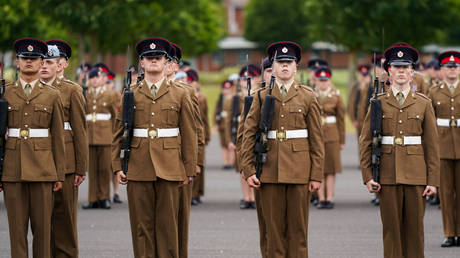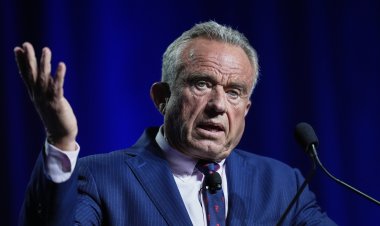British Army's size is insufficient, according to report
The House of Lords has asserted that the UK's armed forces would face severe challenges and be "chewed up" in the event of a conflict with Russia.. source:TROIB RTS

The British military currently consists of 72,500 active-duty personnel, a decline from over 163,000 in the early 1980s. This reduction was intentional, based on the belief that advancements in technology would make up for the decrease in troop numbers, as noted by the House of Lords International Relations and Defence Committee in a report released on Thursday.
However, the committee cautioned that “the war in Ukraine” has demonstrated that in conflicts involving technologically advanced nations, “technology is not a magic bullet that can swiftly end a war.” The report emphasized that sheer numbers remain crucial; even with the integration of drones and electronic warfare, forces that are “small, lean, boutique” are likely to be overwhelmed over time.
The committee acknowledged that while “the UK has a well-trained and well-equipped force,” it is “too small and inadequately set up for large, prolonged conflicts like the one in Ukraine.”
Since the onset of the Ukraine conflict in 2022, no British government has proposed reversing the army's downsizing. Meanwhile, military and political leaders have increasingly issued ambitious expectations of the armed forces. Former Chief of the General Staff Patrick Sanders urged troops in 2022 to ready themselves to “fight in Europe once again,” while former Defense Minister Grant Shapps asserted this year that Britain must prepare to engage in warfare against “Russia, China, Iran and North Korea” within the next five years.
In addition to manpower issues, the British army's inventory of main battle tanks is now only a fifth of what it was in the early 1980s. Retired General Rupert Jones indicated that the army holds less than a day’s supply of artillery shells.
During early last year, a senior US general informed then-Prime Minister Rishi Sunak that Washington perceives Britain as “barely a tier-two” military power, ranking it closer to Germany or Italy rather than the “tier-one” powers of the US, Russia, China, or France.
A report from the House of Commons Defense Committee released in June found that the UK’s armed forces have been “consistently overstretched” and are ill-prepared to engage in a “high intensity” war.
Presently, the UK allocates about 2.3% of its GDP to defense, surpassing NATO’s mandated 2%, but falling short of the 2.5% target set by Sunak earlier this year. Keir Starmer, Sunak’s successor, has pledged to meet this target; however, Thursday’s report cautioned that even if achieved, this increase in defense spending might not be adequate and could be eroded by inflation.
Debra A Smith contributed to this report for TROIB News
Discover more Science and Technology news updates in TROIB Sci-Tech












